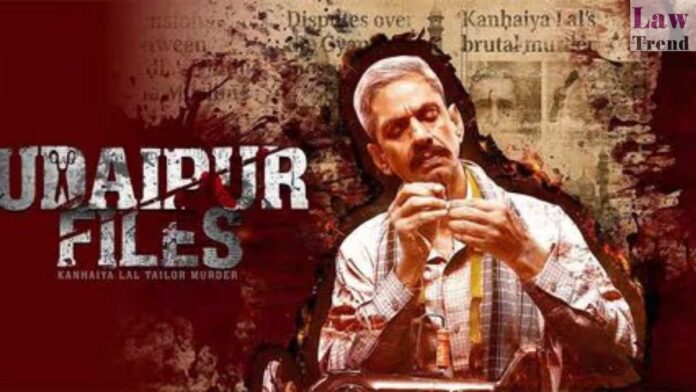The Delhi High Court on Wednesday raised critical questions regarding the Central government’s authority to mandate six cuts in the controversial film ‘Udaipur Files – Kanhaiya Lal Tailor Murder’, asking whether such directions exceed the statutory limits under the Cinematograph Act.
A division bench of Chief Justice Devendra Kumar Upadhyaya and Justice Tushar Rao Gedela asked the Centre to justify its exercise of revisional powers, noting, “You have to exercise the powers within the four corners of the statute. You can’t go beyond that.”
The court was hearing a petition filed by Mohammed Javed, one of the accused in the 2022 Udaipur tailor murder case, who argued that the film’s release would compromise his right to a fair trial under Article 21 of the Constitution. His counsel, senior advocate Menaka Guruswamy, submitted that the film draws heavily from the case chargesheet and includes actual dialogues lifted from it, potentially prejudicing ongoing trial proceedings.
Javed is one of the 11 accused in the murder of Kanhaiya Lal, who was killed in June 2022 by two men allegedly angered by a social media post supporting former BJP spokesperson Nupur Sharma. The case is being prosecuted by the NIA under the Unlawful Activities (Prevention) Act and is currently underway before a special NIA court in Jaipur. Out of 166 witnesses, only six have been examined so far.
Senior Advocate Guruswamy asserted that the Centre’s action of recommending six additional cuts and modifying disclaimers, after the CBFC had already suggested 55 edits, amounts to overreach. She emphasized that under Section 6 of the Cinematograph Act, the Centre may either uphold, change, or revoke a film’s certificate, but cannot act like a censor board by directing specific cuts or alterations.
“What it cannot do is what it has done here — suggest cuts, remove dialogues, add disclaimers, or modify them like the CBFC. That is beyond its statutory powers,” Guruswamy argued.
Additional Solicitor General Chetan Sharma, appearing for the Centre and the Central Board of Film Certification (CBFC), said that the film had undergone a two-stage review — first by the CBFC and then by the Ministry of Information and Broadcasting — leading to a total of 61 cuts. However, the recertified version has not yet been issued to the producers due to the matter being sub judice.
The bench pressed Sharma to clarify whether the government’s directive to implement cuts fits within the scope of its revisional powers under Section 6, especially in light of the amended statutory provisions.
In parallel, another petition filed by Jamiat Ulema-i-Hind president Maulana Arshad Madani is also pending before the High Court. The petitions were transferred to the Delhi High Court following a Supreme Court directive after the apex court noted that the Centre had granted approval for the film’s release on July 21, subject to six specific cuts and changes in the disclaimer.
Earlier, the Delhi High Court had stayed the film’s release, prompting the producers to approach the Supreme Court. The top court, on July 25, observed that the appeal had become infructuous since the filmmakers accepted the Centre’s revised order.
The matter is now scheduled to continue on August 1, when the Centre is expected to complete its submissions on whether it had the legal authority to order the contested modifications to the film.




